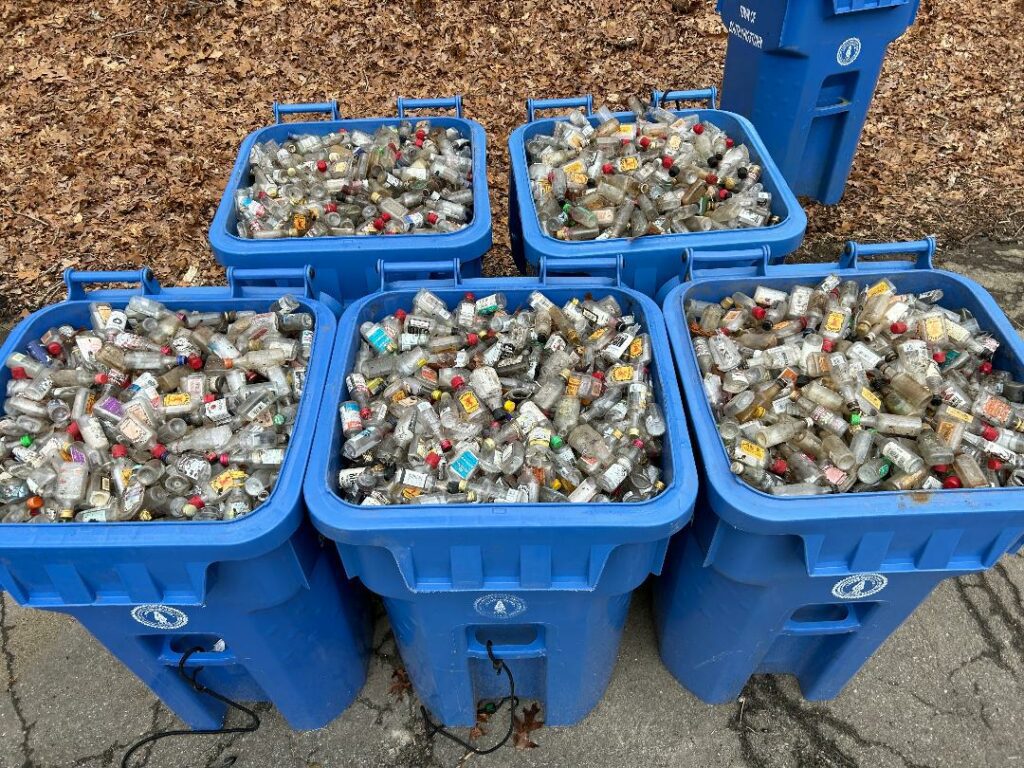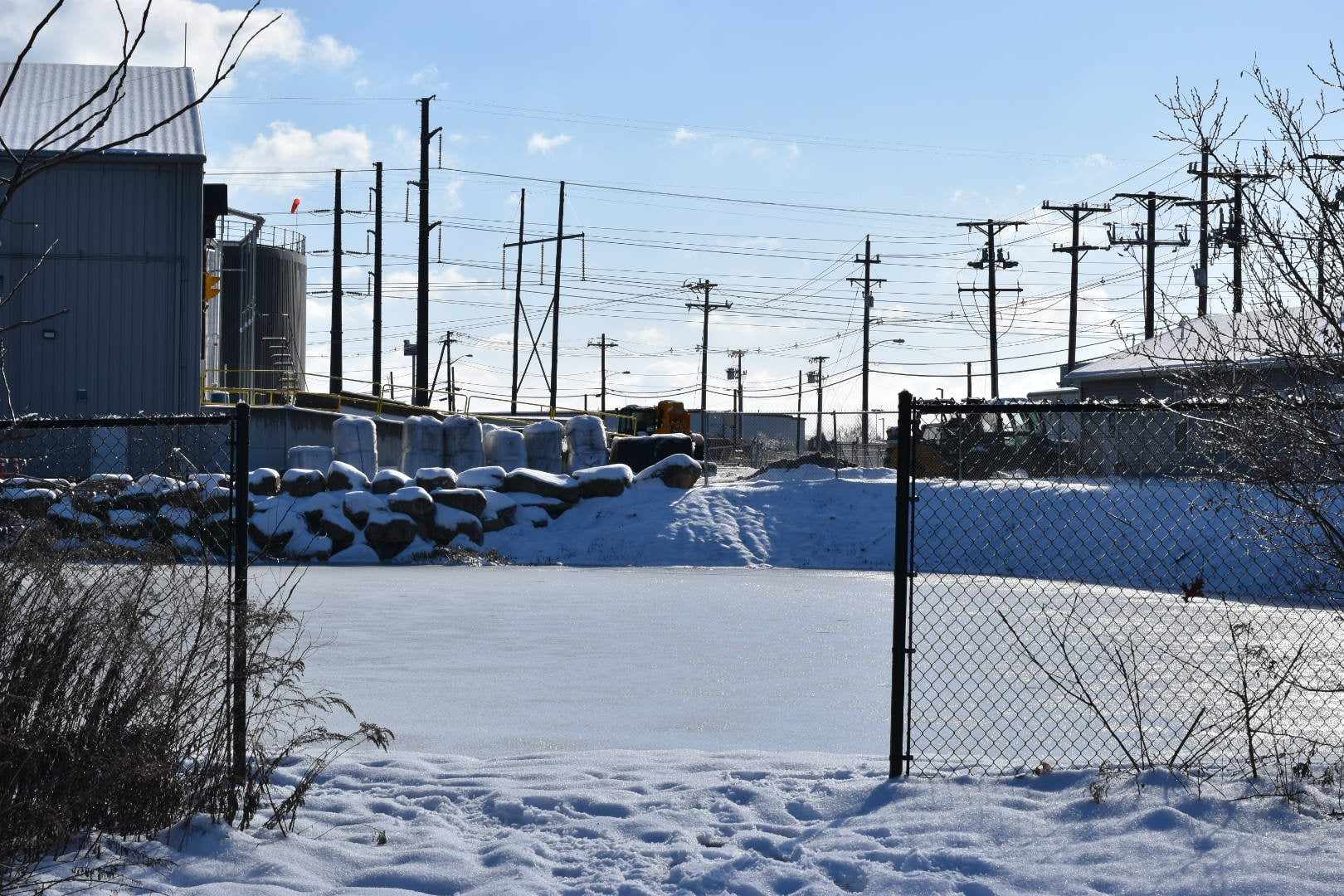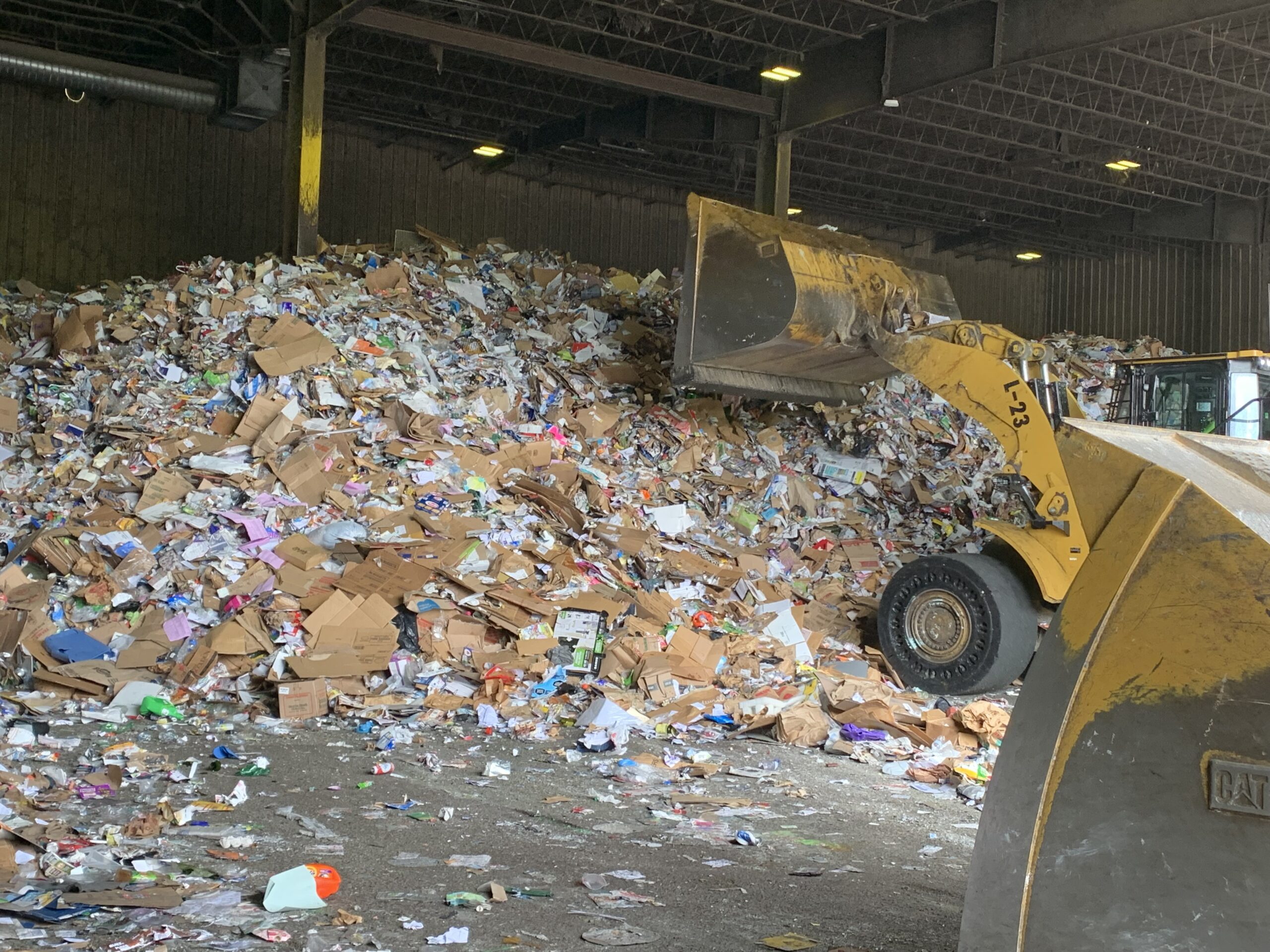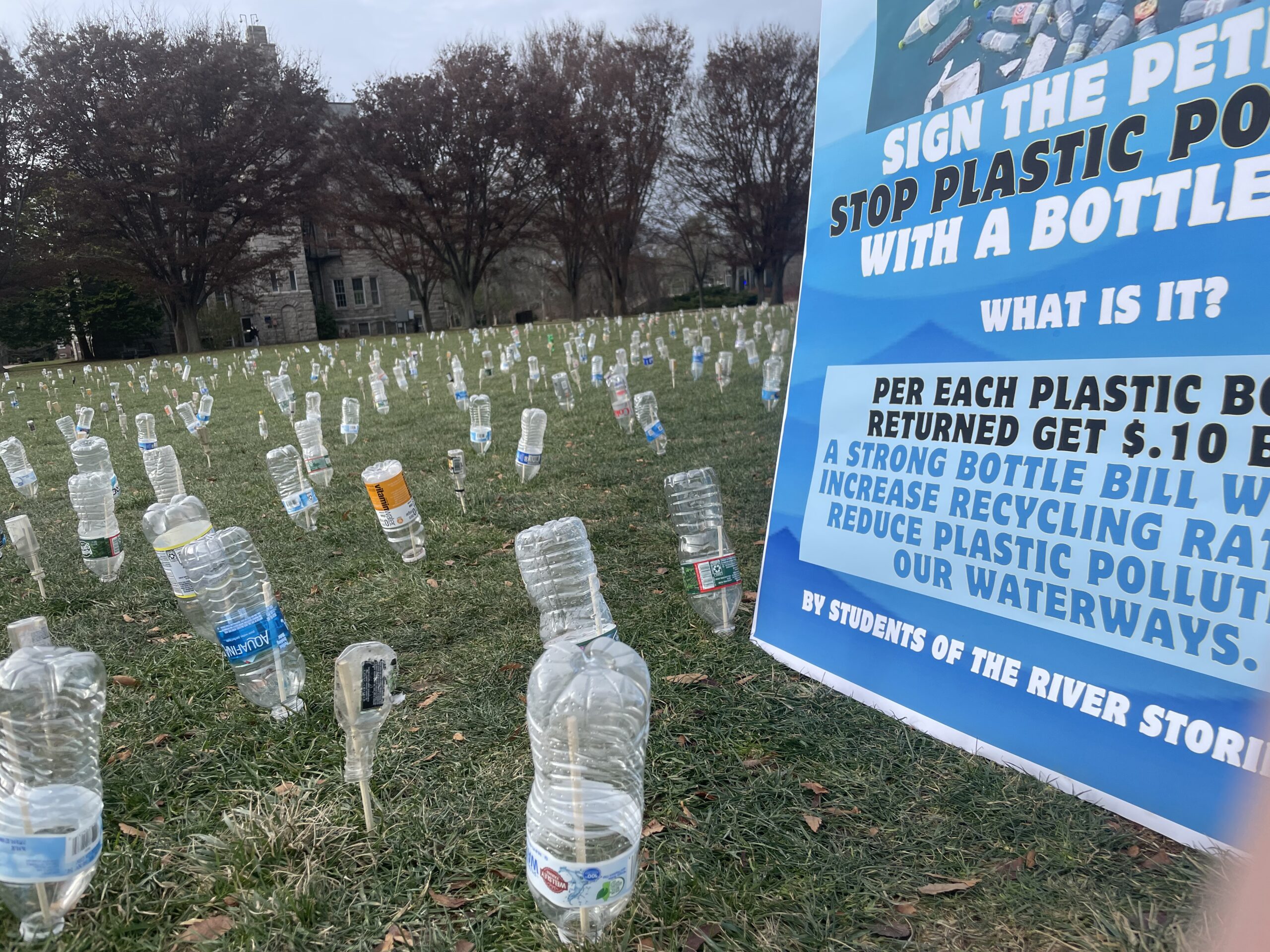Picking Up Nips Presents Great Challenge for Litter Patrollers
Bottle bill would incentivize others to join the cleanup effort, or keep them from being tossed in the first place
February 27, 2023
SOUTH KINGSTOWN, R.I. — According to Bill McCusker, two of the most likely places to find discarded nip bottles are on highway entrance and exit ramps and, not surprisingly, in liquor store parking lots.
He should know — he’s helping oversee an effort to collect the tiny, ubiquitous discarded liquor bottles in all 39 cities and towns in Rhode Island. So far in the Great Nip Pickup Challenge, volunteers have collected 34,800 nips over 60 days in 31 municipalities, he said. The goal is to see how many discarded nip bottles can be collected in 90 days, from Dec. 27 of last year through March 27.
“We are a slobby society,” McCusker said. “I bet I could pick up a couple dozen” off one highway ramp.
His organization, the Friends of the Saugatucket, along with other environmental groups, including Save The Bay, are planning to bring photos of all the nips collected so far to a rally scheduled for March 9 at 3:30 p.m. in the Statehouse library in support of this year’s version of a container deposit law, aka a “bottle bill.” The bill (H5502) would give a 10-cent refund for returned containers “not less than 50 milliliters nor greater than 3 liters.” A nip is about 1.7 ounces, or 50 milliliters.
Versions of such a bill have been introduced since the 1980s, McCusker said, but one has yet to be passed. Last year’s bill “went to study, where bills go to die,” he said.

If the bottle bill is passed and each nip is worth 10 cents, it would help reduce the number of nips thrown out, McCusker said. Getting 10 cents per bottle “could be an incentive for someone in need,” he said, “and a win-win for the state.”
In states where there are container deposit laws, the recycling rates are higher, studies have shown. For instance, Maine has a 5-cent deposit on nip bottles, and it also happens to be the state with the highest recycling rate, according to the 2021 50 States of Recycling report.
“A deposit return system would have minimal impact on the state budget, and achieve far greater results than litter pickup programs,” according to a January letter to Gov. Dan McKee urging the passage of such legislation. The letter was signed by representatives of Clean Water Action, the Conservation Law Foundation, Save The Bay, Clean Ocean Access, Just Zero, the Woonasquatucket River Watershed Council, Be The Solution to Pollution, the Audubon Society of Rhode Island, the Environmental Council of Rhode Island, and Zero Waste Providence.
Although he would prefer to see nips banned, McCusker said, a deposit return would be a start.
“We need some sort of vehicle to take litter off the streets,” he said. “A bottle bill is a way to pick up the litter as soon as it gets dropped. The longer it sits, the more expensive it costs to pick up.”
Anyone can participate in the Great Nip Pickup Challenge, McCusker said. Save The Bay has a recycling bin at the public pier at Fields Point in Providence, 100 Save The Bay Drive, where collected nips can be dropped off between 8:30 a.m. and 4:30 p.m., Monday-Friday. There will be a final collection day at that location on March 19 from 9 a.m.-1 p.m. There will also be a one-time collection at the Exploration Center & Aquarium, 175 Memorial Blvd. in Newport from 10 a.m.-2 p.m. Those who bring nips to be dropped off will receive free admission to the aquarium on that day.
All nips must be 50 milliliters and made of plastic so they can be recycled by Save The Bay at Rhode Island Resource Recovery Corp., according to Save The Bay.
The Friends of the Saugatucket offers pickups that can be arranged through its Facebook page or by emailing [email protected].




It’s my understanding that nip bottles are too small to be recycled. Is there someplace Save the Bay takes them that can handle them for recycling?
Barbara,
According to Save The Bay, the plastic nip bottles that are collected are taken to the Rhode Island Resource Recovery Corp. in Johnston to be recycled.
Nowhere are “NIPS” part of bottle bills, ie; pay deposit, turn in bottle, get deposit back. Shame on you for this red herring !
Nip bottles are the alcoholics friend. Why because they are inexpensive easily concealed and easily disposable. When an alcoholic can’t afford a regular size bottle a nip bottle temporarily solves their need for a drink.
The only real solution to the nip problem is ban the manufacture and sale if them.
That would require a concerted effort because the package store association and the alcoholic beverage industry lobbies is would fight this almost as much as that alcoholic fights for his next drink.
roland is unfortunately right. my local liquor store owner told me that buying nips is cheaper than buying full sized bottles of liquor. as roland points out they are swig and throw out forms of drink and drive since its illegal to have an open bottle of alcohol in the car. nips should be banned regardless of all the whining complaints of liquor store owners. bty the quality of the liquor in the nips at my local store wouldn t justify using it for hand sanitizer.
In my opinion, Mr. Gauvin and Pastore are correct; only a ban will work. Nips are the preferred choice for teens and those with alcohol problems. In my community, Cumberland, I have organized a roadside cleanup – Yellow Bag Day – with more than 150 volunteers for 20 years now. (This year it will be on April 1). Mentioned by most volunteers – with contempt – are the nips. Teens and alcoholics won’t be looking for their 10 cents back; they will still be tossed out the window. And so the 10 cents will be merely a tax and punishment, and a big win for state revenues. I don’t hate that idea, but we should be honest. “Recycling” isn’t really what will happen. Further, the Wall Street Journal and others report that only about 8% of all plastics collected for recycling are ever re-used. If true, most honest folks would regard that as failure, but still, it goes on. I will keep recycling, but the results to this point are disappointing. As for nips, I’d ban them outright.